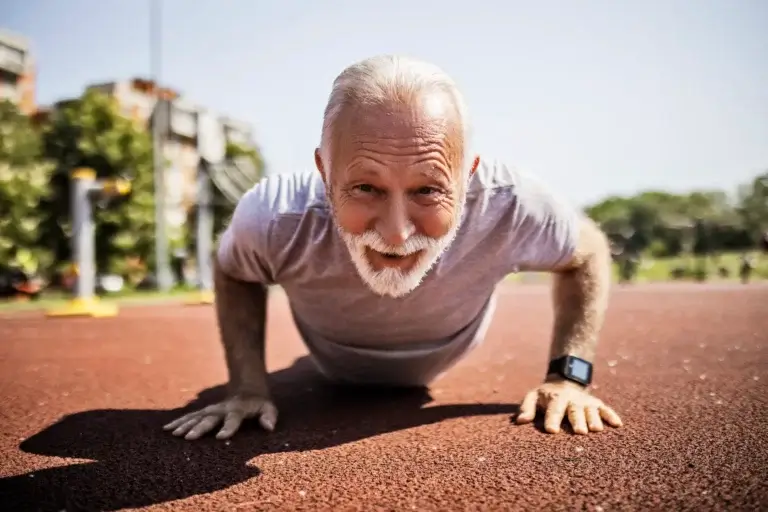
Strength
The Link Between Testosterone And Libido
1 min read
Published on
June 6, 2023
Written by
EDGE
Share this article
WHAT IS LIBIDO?
Libido refers to an individual’s overall sexual desire and interest in sexual activity. It is a complex phenomenon that can be influenced by a variety of factors, including exercise, hormonal levels, overall health, and psychological factors.
While libido can vary greatly from person to person, it is generally considered to be an important aspect of overall health and wellbeing. Low libido can be a sign of underlying health issues, such as hormonal imbalances or depression, and can also have a negative impact on relationships and overall quality of life.
THE RELATIONSHIP BETWEEN TESTOSTERONE AND LIBIDO
While testosterone is just one of many factors that can impact libido, it is an important one. Studies have found higher levels of testosterone are associated with higher levels of libido[1].
However, it’s important to note that testosterone is not the only factor that impacts libido, and that there is no one-size-fits-all solution to addressing issues with low libido. Obesity has been linked with lower levels of testosterone and a reduced libido[2]. In some cases, addressing underlying health issues or making lifestyle changes may be enough to improve libido. In other cases, medical interventions such as hormone replacement therapy may be necessary.
CAN EXERCISE IMPACT LIBIDO?
Regular exercise has numerous benefits for overall health, including improved cardiovascular function, increased strength and endurance, and a reduced risk of chronic diseases such as diabetes and hypertension. However, exercise can also have a significant impact on libido, or sexual desire.
Studies have shown that regular exercise can increase libido and improve sexual function in both men and women[3]. This is thought to be due to a number of factors, including improved cardiovascular health, increased blood flow to the genitals, and the release of endorphins and other feel-good hormones during and after exercise.
However, it’s important to note that overtraining can have the opposite effect on libido. When the body is pushed too hard without adequate rest and recovery, it can lead to a decrease in testosterone levels.
Research has shown that endurance athletes and overtraining, in particular, may be at risk for decreased testosterone levels due to overtraining[4]. This can lead to a decreased sex drive and even erectile dysfunction.
To avoid these negative effects, it’s important to maintain a balanced exercise routine that includes adequate rest and recovery time. This can help to ensure that testosterone levels remain stable and that libido and sexual function remain healthy.
Blood test for
Advanced Testosterone
12 Biomarkers Included
sports doctor review
Results in 2 working days
Flexible subscription
Medically Reviewed

This article has been reviewed by our medical expert
Our expert Dr Thom Phillips works in NHS general practice and has a decade of experience working in both male and female elite sport. He has a background in exercise physiology and has published research into fatigue biomarkers.
Get 10% off your first order
Want regular tips on how to make the most of your results? Join our newsletter and we'll give you 10% off your order!
